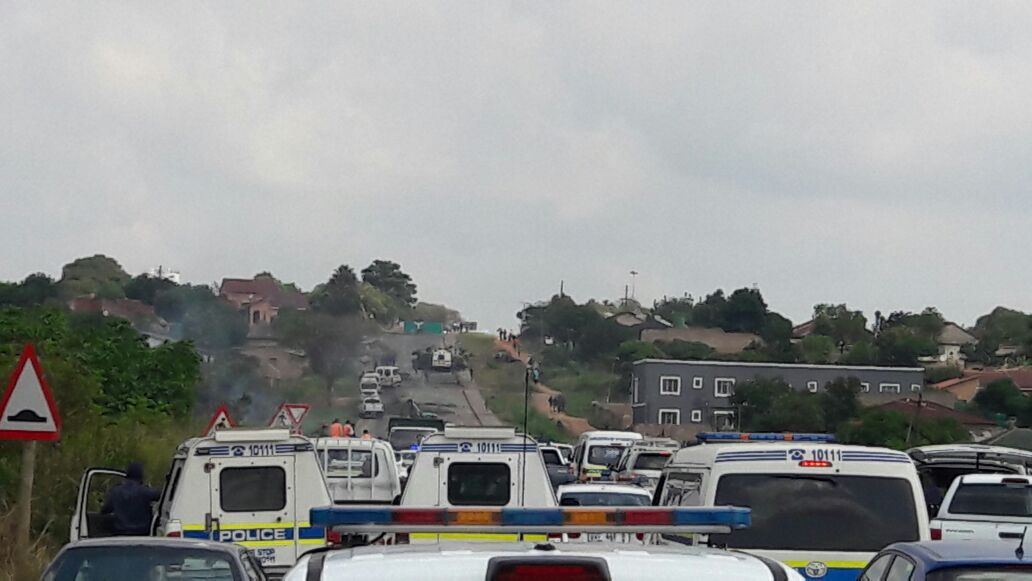Some tourists vowed never to return to the Kruger National Park after encountering protesters earlier this week.
2 hours ago
Stefan de Villiers
MBOMBELA – A group of Australian tourists vowed never to return to the Kruger National Park after encountering protesters hindering their visit.
The Paul Kruger, Phabeni and Numbi gates were inaccessible due to service-delivery protests that took place on the R536 and R538 earlier this week.

Col Mtsholi Bhembe said the police swept through the area clean on Tuesday, and in the process arrested 23 protesters for public violence. SANParks’ Rey Thakuli said all gates were open by the time of going to press on Wednesday.
The protests caused havoc among tour operators, who had to explain to expectant international tourists that these roads were closed because of the adjacent community having blockaded it with burning tyres and rubble. Guests and tour operators alike were advised to use alternative routes such as the Malelane or Orpen gates, which for some, caused a massive loss in business.
“The tourists were in a state of shock and panic. We were forced to cancel the trip and refund the customers. On the same day, with a bitter taste in their mouths, they left the Lowveld and took a plane to Cape Town. After an hour waiting it out at Mugg & Bean in Hazyview, we cancelled the trip and they vowed never to return,” said Hennie Bekker, co-owner of Private Kruger Safaris.
Another trip for tourists on their way to the park on one of African Spears’ safari vehicles also encountered the carnage. After waiting almost three hours in full view of the chaos, the driver of the safari vehicle decided to vacate the tourists. This marked the end of their exciting, once-in-a-lifetime Kruger safari.
“Using Malelane or Orpen Gate would then be futile, as prime game-viewing time was already lost,” said Ivan Spies, co-owner of African Spear.
Hylton Langley, from Hylton Langley Safaris, added that as a tour operator, bringing in millions of rand worth of foreign currency to this country and creating and maintaining jobs in the tourist industry, he finds the current situation on the routes to and from the Kruger National Park shocking.
“We find that all the protests on these routes in the trust areas put our lives and our international clients’ in danger. I have to frequently change routes to avoid one violent protest after the other, but have on several occasions been confronted with burning tyres, stone throwing, road blockades and intimidation by mobs. This is while I have clients in the safari vehicles and buses,” said Langley.
“Police do nothing to protect us and other members of the public at these places where the riots are happening. Do you have any idea of what impression this has on tourists who shake their heads at the violence, feel threatened and intimidated, and have to sometimes give up their dream of having one day in the Kruger National Park? They go home, and warn others not to come,” he said.
Not just there, but in Sabie, Graskop, Bushbuckridge, and the routes to all the southern gates of the Kruger National Park, including the N4, have been affected.
Langley spoke to the staff at Numbi Gate on why they protest on these routes, and the answer is that they get a quicker response from the powers that be when tourists are affected.
“So we become pawns in the non-delivery protests, and I wonder when the police and government are going to act and protect us? Does the government realise the seriousness of the problem and how this is going to give South Africa a bad name? Is it only when one of us gets killed that anything is done?” he asks.
“A tourist who is injured during a protest like this can cause a business to crumble,” said Andrew Wagner of Safaria.
“Guests are brought to SA from across the world with great effort, and looking them in the eye and telling them that the trip they have been looking forward to for months is cancelled is embarrassing and a poor reflection on SA,” he said.
According to Linda Grimbeek of the Kruger Lowveld Chamber of Business and Tourism, around 1,8 million poeple visit the park annually. “A recent study showed that the majority of tourists who visit the Lowveld also visit the park. Thus being confronted by violent protests not only affects the image of the Lowveld, but the whole country.
“Inevitably, pictures are spread on social media and spread like wildfire, leading to a string of cancellations. Ultimately we face the risk of completely being cut out of tourists’ itinerary, which will take years to fix,” said Grimbeek. “The Lowveld generates about 50 per cent of the province’s income, which can mainly be attributed to tourism. So if it wasn’t for the Kruger, we would have been in dire straits a long time ago,” said Grimbeek.
“It’s an embarrassment, and above all it is irritating and frightening for tourists. They won’t come back, and they will tell their friends not to come.
“Our country will quite obviously – to the international mind – not seem safe for tourism any longer,” said Christopher Harvie from the Chamber of Business and Tourism in one of the Lowveld’s tourism hubs, Hazyview.
https://lowvelder.co.za/427721/protests ... footprint/


